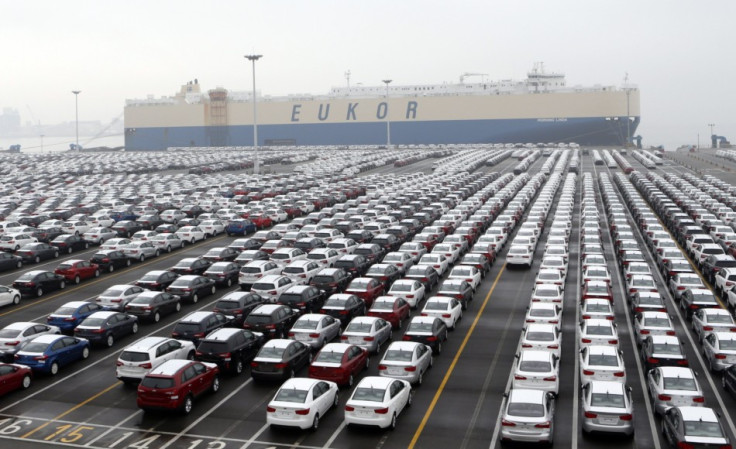South Korean Exports Climb in January but Economic Concerns Remain
Shipments rose at the quickest pace in 11 months in January

South Korean exports gained in January, at the quickest pace in 11 months but other indicators including manufacturing figures and inflation data pointed to persisting economic concerns.
According to the Ministry of Knowledge Economy, shipments in Asia's fourth biggest economy increased 11.8 percent year-on-year in the month, picking up from the 5.7 percent drop in December and beating analysts' estimates of a 10.6 percent rise. Imports also beat expectations, improving to 3.9 percent.
The upbeat figures are the best since February 2012, but analysts urge caution as the data could have been impacted by the two extra working days compared with the previous year. This concern was underscored by the HSBC's Purchasing Managers Index (PMI), which showed a decline in manufacturing activities in the country. The index dropped to 49.9 from 50.1 in December.
Separate government data also showed that the country's annual inflation in January remained at 1.5 percent, improving from 1.4 percent in December, but sharply lower to Bank of Korea's target range of 2.5 percent to 3.5 percent.
"Though exports are recovering as external conditions improve, corporate investment remains suppressed because of uncertainties about the won-yen exchange rate and home prices continue to deflate, so domestic demand still isn't recovering," Lee Chul-hee, chief economist for Tong Yang Securities in Seoul told Reuters.
The South Korean government had remained concerned that the country's exporters might have been hit by the won's relative strength against its peers as major developed economies look to boost growth with stimulus measures. The local currency had firmed 8.3 percent against the dollar in 2012 and 16.5 percent against the yen in the fourth quarter of 2012.
"There is usually a bit of a lag before exports start factoring in (the yen-won exchange rate)," said Deputy Minister for Trade Han Jin-hyun.
"Based on what we have been told, local companies are seeing a big hit on their profitability and we believe this will eventually affect exports".
The low inflation rate is expected to allow Bank of Korea more freedom to cut its interest rates, which could help curb the local currency's strength. The lender has maintained rates at 2.75 for the third straight month in January. Analysts remain unconvinced that the central bank to resort to any rate reduction for the moment but point out that rate cuts could follow if conditions do not improve.
© Copyright IBTimes 2025. All rights reserved.





















